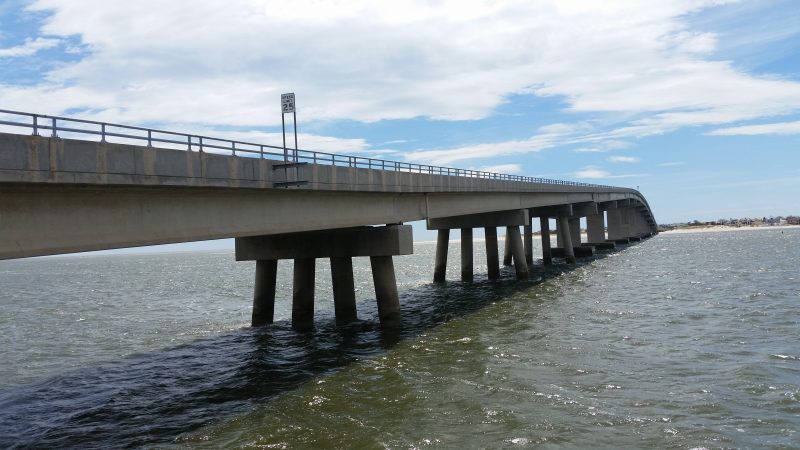By DONALD WITTKOWSKI
Five toll bridges linking the Cape May County beach communities along the Ocean Drive will no longer accept cash payments in response to the coronavirus outbreak.
They include the Ocean City-Longport Bridge between the northern end of Ocean City and Longport, the Corson’s Inlet Bridge between Ocean City and Strathmere, the Townsends Inlet Bridge between Sea Isle City and Avalon, the Grassy Sound Bridge between North Wildwood and Stone Harbor and the Middle Thorofare Bridge between Cape May and Wildwood Crest.
The Cape May County Bridge Commission, which oversees the bridge network, announced that it will implement a cashless toll system beginning 6 a.m. Thursday until further notice “as a precaution against the spread of COVID-19.”
Vehicles with E-ZPass will continue to be charged the $1.50 toll to cross the bridges. Equipment at the toll plaza will read the E-ZPass tags and the fare will be electronically deducted from customers’ accounts, as usual.
For motorists who don’t have E-ZPass, a photo will be taken of their license plate and a bill for the toll will be mailed to the registered owner. The bill will be for the regular cash toll rate. No additional administrative fees will be charged if the bill is paid within 30 days, according to a county press release.
Motorists are asked to continue driving through the toll plaza without stopping while obeying the 5 mph posted speed limit.
Cash customers who do not want to be billed can open an E-ZPass account by calling the New Jersey E-ZPass Customer Service Center at 888-AUTO-TOLL (888-288-6865) or by visiting www.ezpassnj.com.

The Ocean City-Longport Bridge is one of five toll spans that link the Cape May County beach towns along the Ocean Drive.
The Cape May County Bridge Commission now joins with other toll road and bridge operators in temporarily suspending cash payments to help stem the spread of the coronavirus.
The Atlantic City Expressway, Garden State Parkway and New Jersey Turnpike stopped accepting cash payments on Tuesday night. The Delaware River and Bay Authority will halt cash transactions on the Delaware Memorial Bridge at 12:01 a.m. Thursday.
Annually, about 1.9 million vehicles use the five spans operated by the Cape May County Bridge Commission, paying about $2.9 million in tolls, according to the agency’s financial statements.
Cash payments represent only about 25 percent of the toll transactions on the bridges. E-ZPass accounts for the rest of the traffic.
Previously, the bridge toll takers had the option of using a bucket to collect cash payments so they wouldn’t have to risk touching any money. They have also been protecting themselves from the coronavirus by wearing gloves, using hand sanitizers and spraying money with a disinfectant.
“We are providing everything we can to our collectors in the booth,” Karen Coughlin, the bridge commission’s executive director, said in an interview last week.
Motorists paying in cash must stop at the toll booth and hand over their money to the collector. This process requires the collectors to physically interact with motorists in close contact, potentially raising the risk of coronavirus exposure for both the drivers and the toll takers.
As recently as its March 19 board meeting, the bridge commission had no plans to stop accepting cash payments. Carol Brand, the board chairwoman, said then she thought it would be unfair for cash drivers not to have to pay while the E-ZPass motorists would still be charged to cross the bridges.
But now, the bridge commission has devised a plan to bill the drivers who normally pay in cash. The Atlantic City Expressway, Garden State Parkway, New Jersey Turnpike and Delaware Memorial Bridge will also bill those motorists.
